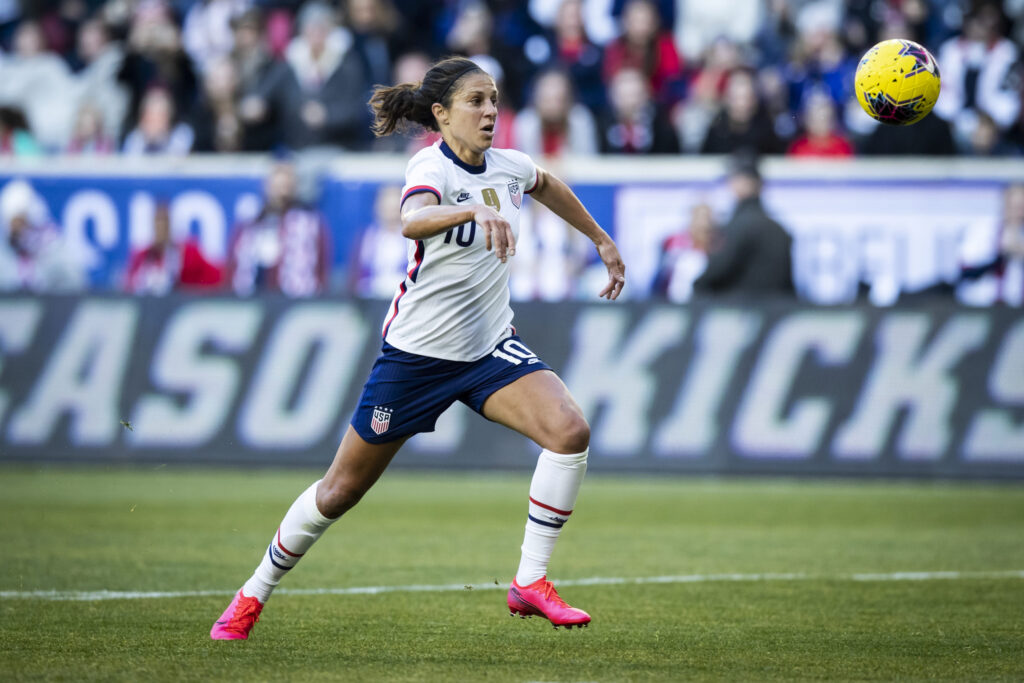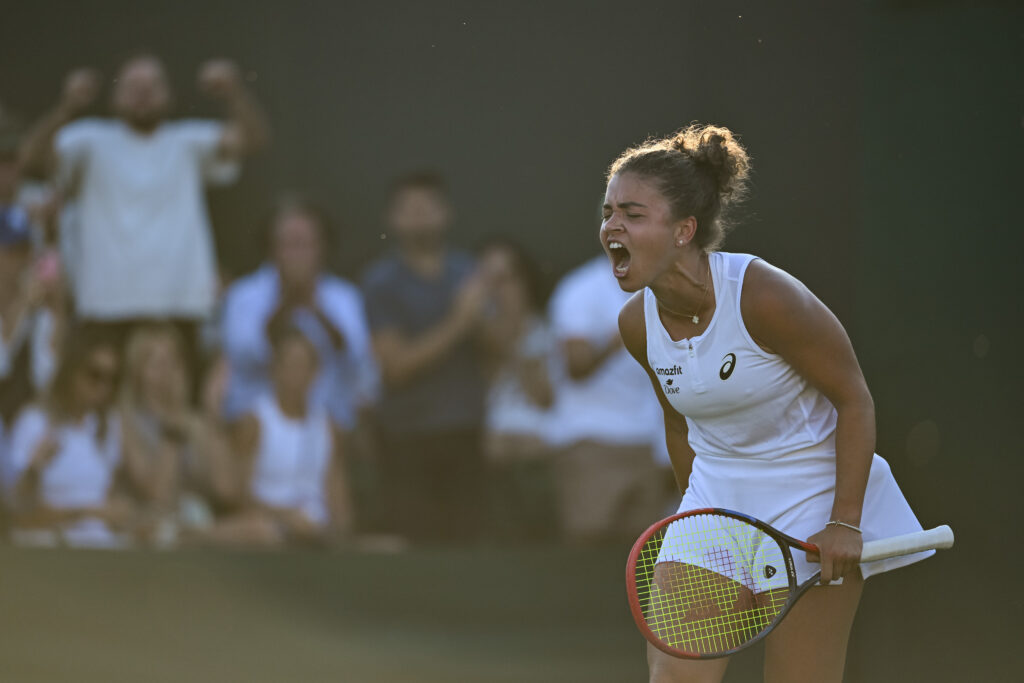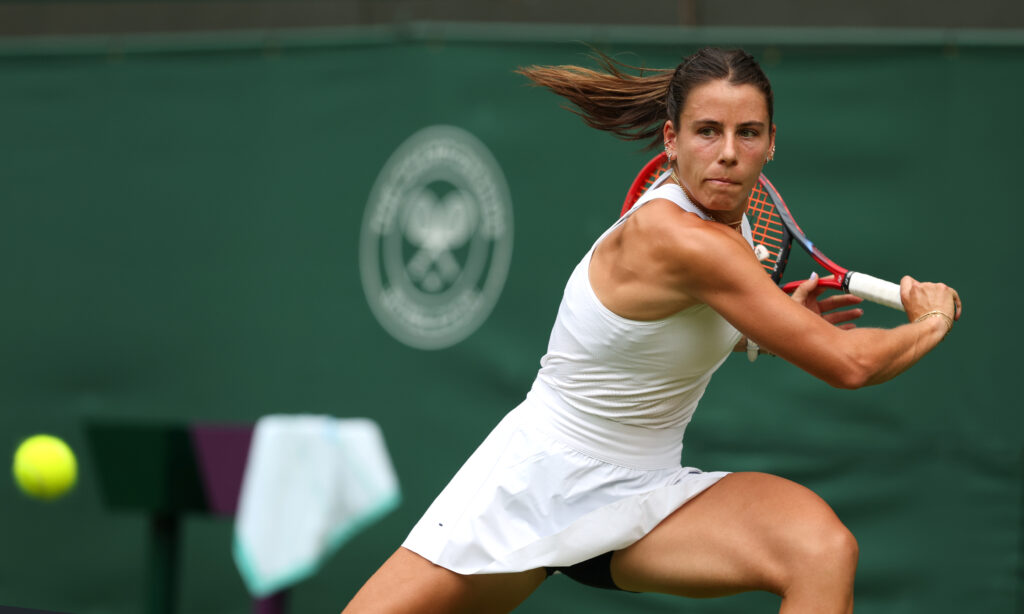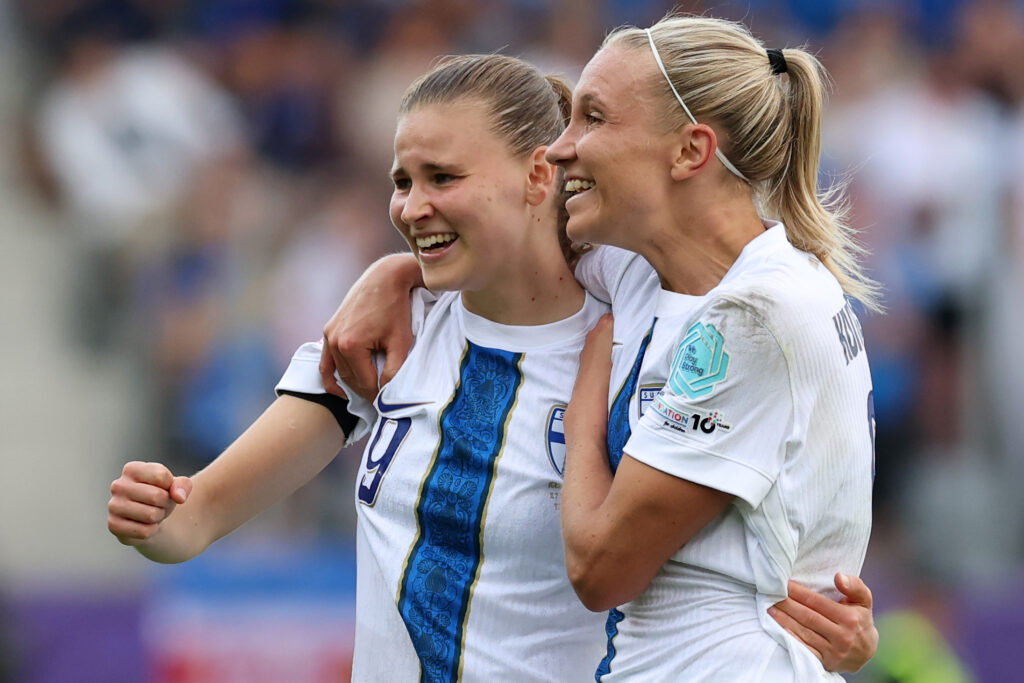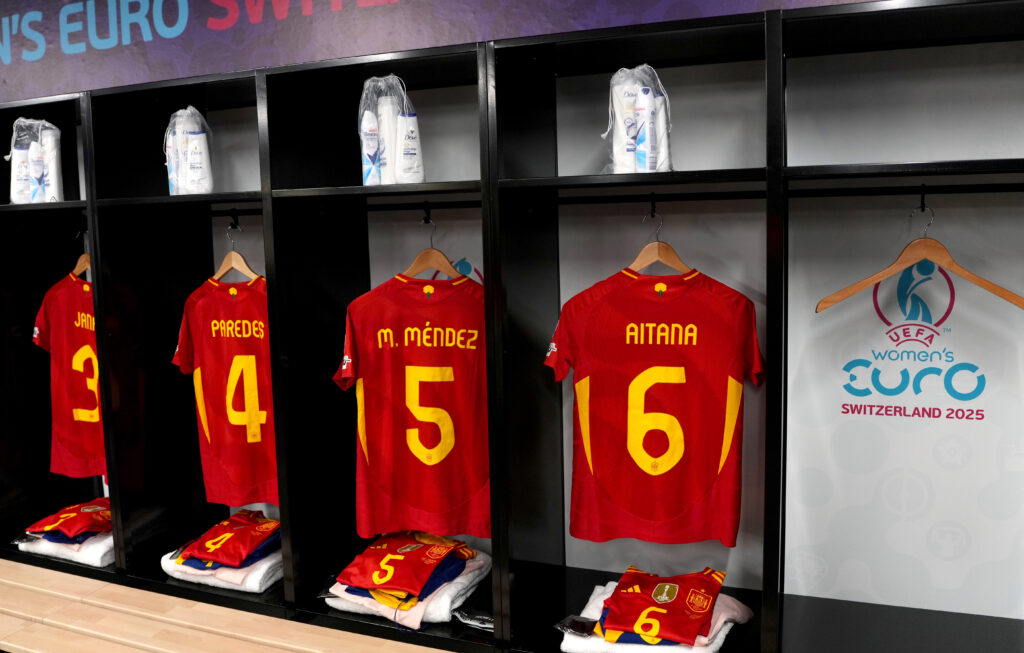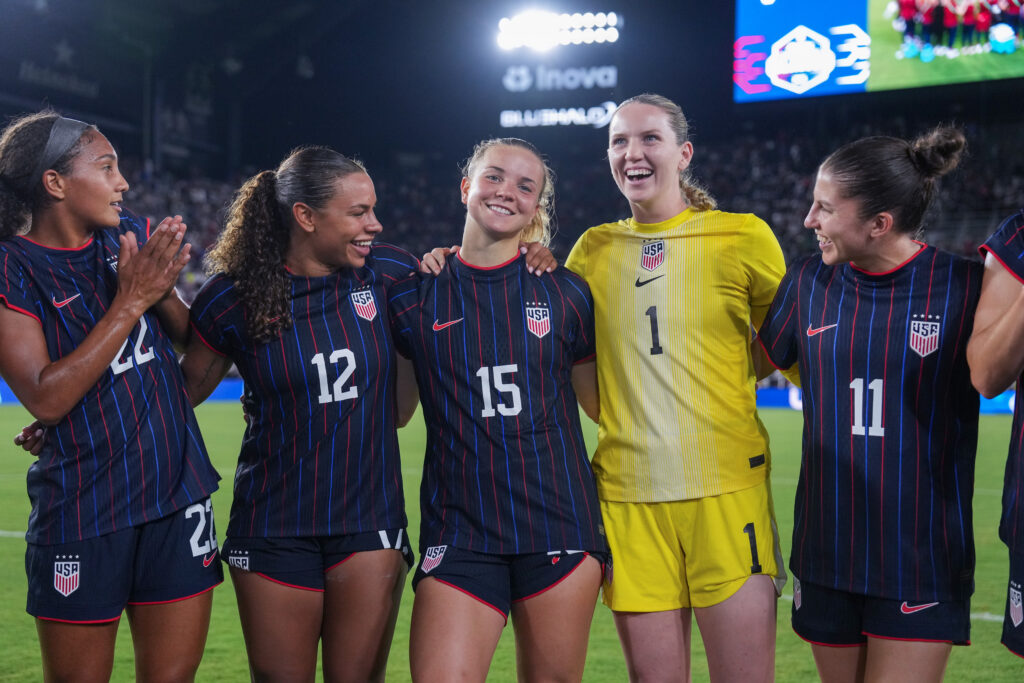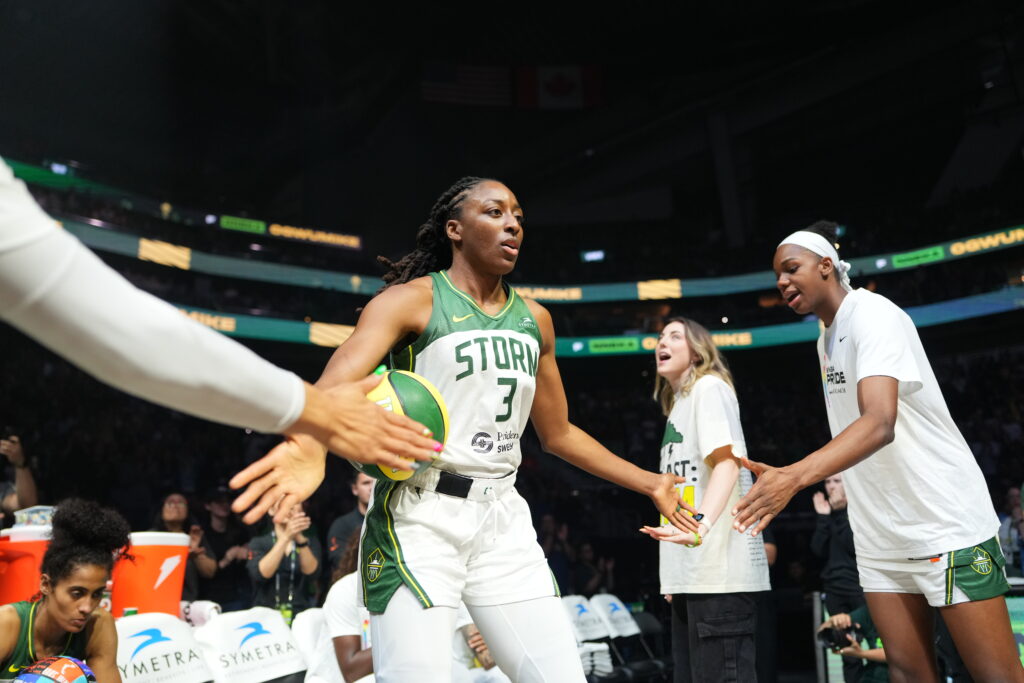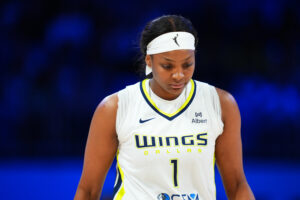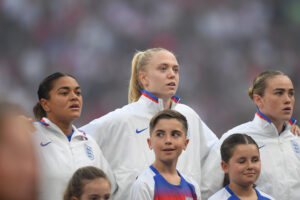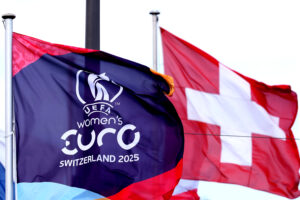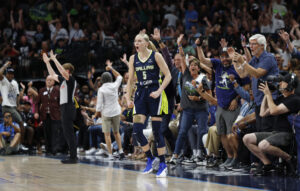Carli Lloyd knows that there’s still a bit of work to be done when it comes to the recent equal pay settlement between US Soccer and the USWNT. Speaking on the first episode of “Hope Solo Speaks,” a new podcast hosted by former USWNT goalkeeper Hope Solo, she addresses the contingency placed on the deal.
Lloyd said Wednesday that she doesn’t know how the current CBA negotiations are going, having been completely out of it since she retired from the USWNT in November. Calling it a “relief” to have certain aspects of the battle between the USWNT and U.S. Soccer settled, she still acknowledges that the fight is still not over. The two sides’ recent equal pay settlement agreement is contingent on USSF and the USWNTPA ratifying a new CBA.
“It’s also contingent on the men agreeing for the same deal that the women are gonna get,” she said. “So there’s a lot of variables.
“I would hope that U.S. Soccer would figure it out. To go down this route and leave the CBA hanging and not be in agreement with everything the players want would almost be going backwards.
“I think everybody’s feeling good about it right now. But there’s still a bit of work to do.”
There’s also work to ensure that the new CBA is an improvement from the old one, which both Lloyd and Solo agree was not a good deal.
“When we signed the latest CBA in 2017, you and I, we knew that it wasn’t a good deal,” Lloyd said. “We knew, and we expressed that. And you expressed that over and over again to everybody on the team, the way that they tiered the contracts, the amount of contracts. It looked like we were getting more of a guaranteed contract – which we were – but each year the contract numbers would decrease.”
According to Solo, the number of players who were under contract also decreased, which meant that they weren’t taking care of a larger pool of players.
“When I saw that contract after I was fired, I was in shock,” said Solo.
“The way that those contracts were structured out — how do you have less contracts in a World Cup and an Olympic year?” Lloyd added. “You have less contracts than the roster actually allows. The Olympics are 18, World Cups are 23, how did we go backwards? So some of those players that were on the World Cup team, the Olympic team, didn’t even have those guaranteed contracts.”
The 2017 CBA allowed the players’ association to control group likeness rights for licensing and non-exclusive sponsorships where USSF did not have sponsors. Additionally, there was an increase in direct compensation and bonus compensation, as well as enhanced travel, per diem and financial support for players looking to have children. At the time, players like Becky Sauerbrunn used the word equitable to describe the CBA, something that Solo called out on Wednesday.
“Everything we had been doing to fight — and then for the team to sign a less than equal contract and then use words like, ‘well it’s equitable,’” she said. “We were fighting for equal. Not something close but not equal.”
Two years after the CBA was ratified, the USWNT players filed their equal pay lawsuit, alleging gender discrimination by US Soccer.
Current CBA negotiations have been extended through at least March 31 after the previous agreement expired in 2021.
